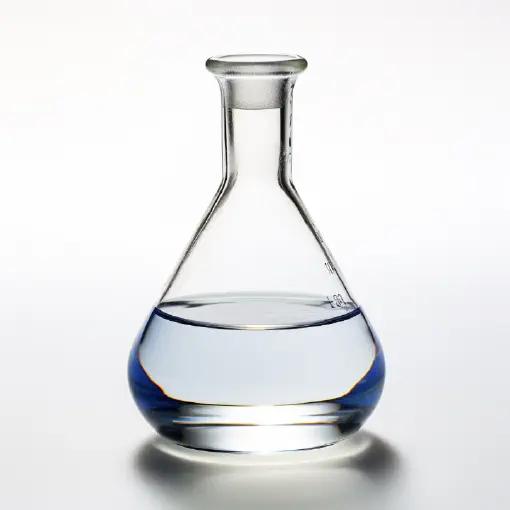Glycerine, also known as glycerol or glycerin, is a colorless, odorless, and viscous liquid with a sweet taste. Here are some physical features of glycerine:
Characteristics
-
Appearance:
Glycerine is a clear, syrupy liquid. It is typically colorless, although it can have a slightly yellowish tinge in some cases.
-
Viscosity:
Glycerine has a high viscosity, meaning it flows slowly and is relatively thick. It has a syrup-like consistency, which contributes to its ability to retain moisture when used in various applications.
-
Solubility:
Glycerine is highly soluble in water. It can also dissolve in various organic solvents, such as ethanol and acetone.
-
Density:
The density of glycerine is approximately 1.26 grams per cubic centimeter (g/cm³) at 20 degrees Celsius. This density allows glycerine to sink in water.
-
Boiling Point:
Glycerine has a relatively high boiling point of around 290 degrees Celsius (554 degrees Fahrenheit).
-
Melting Point:
Glycerine has a melting point of approximately 17.8 degrees Celsius (64 degrees Fahrenheit). It can solidify at lower temperatures, but this mainly depends on the purity and concentration of the glycerine.
-
Hygroscopicity:
Glycerine is hygroscopic, meaning it has a strong affinity for moisture and can absorb water from the environment. This property makes glycerine an effective humectant, helping to retain moisture in certain applications.
-
Non-Toxicity:
Glycerine is considered non-toxic and safe for consumption. It is often used in pharmaceutical, food, and cosmetic products.
Note: These physical features contribute to the versatile nature of glycerine, making it useful in various applications ranging from personal care and pharmaceutical
Applications
Glycerine, has various industrial applications due to its properties and versatility. Here are some common industrial applications of glycerine:
-
Pharmaceutical and cosmetic industry:
Glycerine is widely used in pharmaceuticals and cosmetics as a moisturizer and humectant. It helps to retain moisture, improve skin hydration, and provide a smooth texture to various products such as lotions, creams, and soaps.
-
Food and beverage industry:
Glycerine is frequently used in the food and beverage industry as a sweetener, thickener, and preservative. It can be found in products like baked goods, confectionery items, beverages, and dairy products. Glycerine helps improve the taste, texture, and shelf life of these food items.
-
Personal care products:
Glycerine is a common ingredient in personal care products such as toothpaste, mouthwash, and hair care products. It helps to enhance the effectiveness of these products and provides moisturizing benefits.
-
Pharmaceuticals and medical applications:
Glycerine is utilized in various pharmaceutical applications, including as a solvent, preservative, and stabilizer. It can also be found in medications, cough syrups, and suppositories.
-
Explosives and pyrotechnics:
Glycerine is an essential component in the production of explosives and pyrotechnics. It serves as a plasticizer, helping to stabilize and increase the shelf life of these materials.
-
Industrial lubricants:
Glycerine is used as a lubricant in various industrial applications such as hydraulic systems, cutting fluids, and metalworking processes. It provides lubrication, reduces friction, and helps dissipate heat.
-
Textile and leather industry:
Glycerine is utilized in the textile and leather industry as a softening and conditioning agent. It helps to improve the flexibility, texture, and appearance of fabrics and leather goods.
These are just a few examples of how glycerine is used in various industrial applications. Its wide range of properties and benefits make it a valuable ingredient in many sectors
